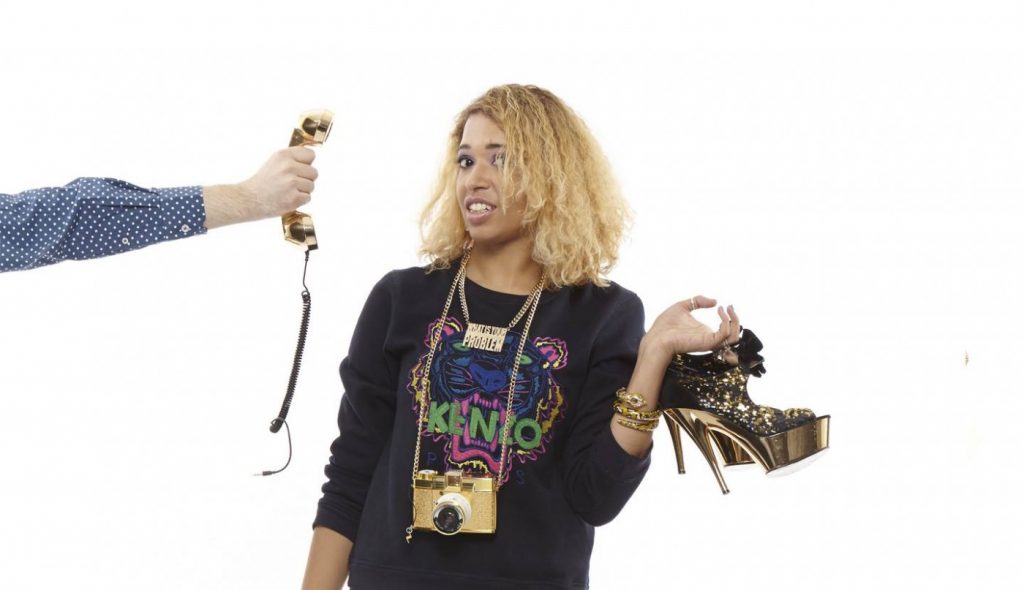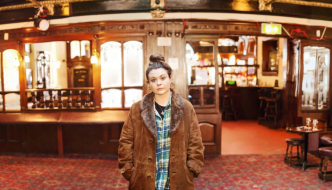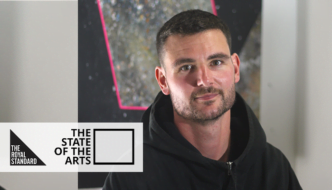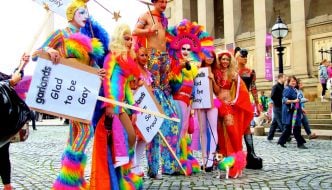Writer Paula Varjack: “For queer artists, the act of putting work out is political”
February 6, 2017

Photo Credit: Nikolas Louka
Looking ahead to Contact Theatre’s LGBT season of events Queer Contact Festival, I caught up with bi/queer writer, filmmaker and performance maker Paula Varjack this week.
Your recently-launched book Letters I Never Sent To You is a storming collection moving between forms, cities, and moods. How’s it been since the madness of the tour has settled? How does it feel now the book has been out in the world for a little while?
Even though the tour was a few months back it feels like so much longer because I’ve been so busy. After getting back to London I met up with fellow writer and performer Sara Hirsch who’s just finished her tour of Still Falling. That really helped settle the experience for both of us.
Doing a tour is so different from regularly gigging, because rather than just presenting yourself and your work in general, all of your energies are focused on promoting this one object: the book and, more importantly, the selling of the book. It’s fascinating how this thing that came out of artistic expression becomes a metric of value for each gig experience, in what is, let’s face it, a very capitalistic gauge. It’s a kind of an exercise that alternates between validation and anxiety. So you feel great when you sell lots of copies of the book, but even though you know every audience might not have a tenner to spare or the inclination to buy books at gigs, you still obsess over translating success into sales. With a little space between the tour grind, I guess the main thing I feel now is a sense of achievement at getting it out there, and joy in connecting with people creatively in an entirely new way.
I always get excited for Queer Contact, and the programme this year is insane. Apart from Outspoken—the event you’re performing at—what else are you excited to see?
I saw Mawaan Rizwan at my favourite alt cabaret night Pollyanna at the Edinburgh Fringe, and I was totally blown away. I would go to the Queer Comedy Night just to see anything like that again. I am also really excited to see Le Gateau Chocolat on the bill. I saw him at La Soirée years ago and the stage presence and voice he has is really something else.
‘Queerness’ is a word that seems to have new found life in the last year. What does ‘queerness’ mean for you?
I really love the word queer because it is so all encompassing. It feels inclusive because all it means to me is ‘not straight’. It suggests to me a sexuality that is more on a continuum and allows the changes in life and love and sex that over a life can take place. The origin of the word means it also expresses a sense of being left of centre , which I like and appreciate. It’s a label I quite happily claim, but also use interchangeably with bi, as bi-visibility is also important to me.
What is ‘queer’ art and why is it important?
I think it depends on the intentions of the artist. I think one artist may see themselves as queer but their art as just art, while for other artists it may be important to identify the work as queer. If I can leave that debate aside, I would say platforms for work by queer artists are very important and not only for the queer community, because they represent stories, characters and values that are not often reflected in mainstream culture.
You’ll be performing alongside Dean Atta, Gerry Potter and Maya Chowdhry, which is not only a stellar but also a really nicely curated line-up. Are there any queer artists making work that you particularly enjoy or find interesting?
This is so hard because there are so many and I don’t want to miss anyone! Off the top of my head, a totally non-exhaustive list would include Scottee, Travis Alablanza, Rachel Mars, Eleanor Fogg (aka John Smith) , Charles Adrian (aka Miss Samantha Mann), Nick Field and Tom Marshman.
Two shows I want to flag up which are exciting – not just for being brilliant pieces of work but also by being. in one case, queer commentary and, in the other, commentary on queer culture – are Rachael Clerke’s Cuncrete and Scottee’s Putting Words In Your Mouth. Putting Words in Your Mouth really shook me up, in a good and bad way. It’s a really important and incisive look at racism in the queer community that is both engaging and really difficult viewing. It’s also thrilling to see the combined energies of four artists: Scottee, Travis Alablanza, Lasana Shabazz and Jamal Gerald, who all have very exciting solo practices.
Queer art seems in many ways inherently political or ‘macrocosmic’ – why is this do you think, and is this good and useful, or not?
I guess when those voices are normally marginalised, it’s the idea of the personal being the political. I truly believe that whatever story you tell on stage, if you are a colour or body or shape that is different to what dominates culture, or if your relationship structures and ways of presenting gender are outside of dominant culture, then the act of putting your work out there is political. It celebrates and highlights voices that often get lost, and it creates the possibilities of new ways of being to people who may not consider them otherwise.
Paula, thanks so much for your time. I look forward to seeing you at Queer Contact.
Outspoken is a spoken word event taking place on the 15th February at 6:30pm in Manchester Central Library. Hosted by Adam Lowe of Young Enigma, it will be featuring Paula Varjack, Maya Chowdhry, Gerry Potter and Dean Atta, who is also leading a workshop at 2pm which is free with a show ticket.
Tickets are £9 (£6 concession). To book visit Contact’s website or call their box office at 0161 274 0600.
Filed under: Written & Spoken Word
Tagged with: filmmaker, interview, Letters I Never Sent To You, LGBT, LGBTQ, Paula Varjack, poet, queer art, Queer Contact Festival, writer



Comments